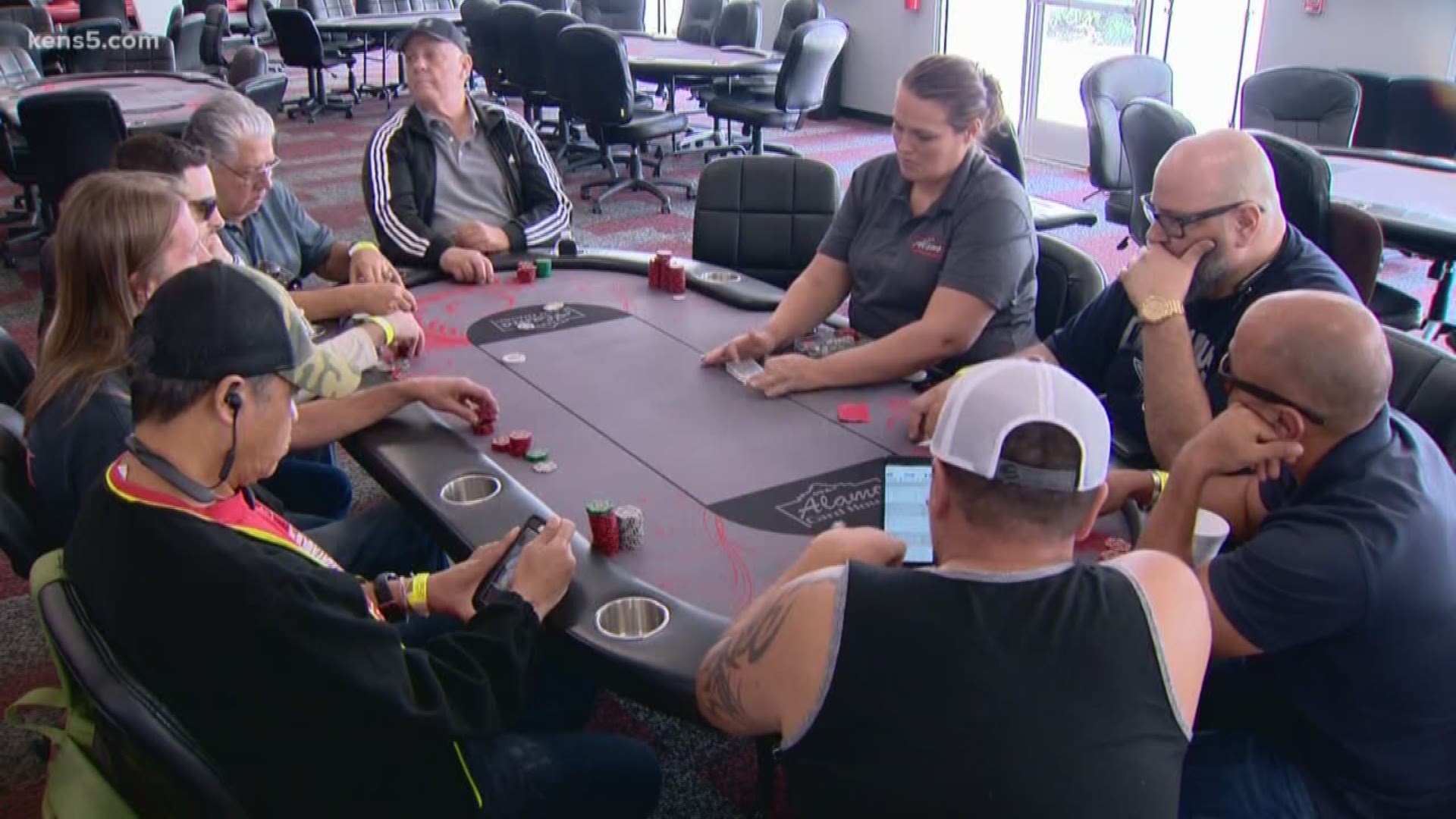SAN ANTONIO — More poker rooms are popping up across the Alamo City despite the state’s controversial gambling law.
KENS 5 went inside Alamo Card House, the first poker room to open in San Antonio, to talk to staff and players. Co-owner Valarie Howard said there may be different card houses, but they have gained a reputable reputation over the years.
Among the restrictions: No smoking, vaping or alcohol.
“We had to create a name for ourselves, and we had to set a tone a certain way. A lot of the people were used to the home game environment. Unfortunately, there were a lot of people we had to ban,” Howard said. “People see it as a money-making business, and it is. But it’s not as easy as people think. As many as they open, many shut down. As one opens, one shuts down. Eventually there will be a few of us standing."
Alamo Card House staff say people have expressed concerns about the legalities of their establishment, but Howard emphasized they operate based on membership fees, and the house doesn’t take a cut of the pot.
“It’s a fine line because people think of poker as gambling, but we of course think of it as a skillset. Poker enthusiasts believe it as a skill, not gambling,” she said. “There’s naysayers as far as, 'Can you do that? Can you not do that?' It was a big risk we had to take. But we saw Texas Card House was doing it, and we thought it was a great opportunity to bring to San Antonio.”
Howard said the players and dealers are the ones benefiting from their business.
Nick Olivencia, who plays at the Alamo Card House every week, said he has known how to play poker since he was in middle school. Now, years later, he's quit his job for a full-time poker gig.
“There’s a saying that goes: 'Poker is a game played with cards about people.' That’s why I enjoy it,” he said. “Poker is an interesting mix of mathematical precision and psychological edge to it.”
Olivencia said he’s been able to save up money for law school. He predicts when he hits the year mark, he’ll be in the six-figure range. When asked if he was taking a risk, he said the winnings have proven to be worth it.
“But that’s how you also define risk. You could also say (being) under corporate shackles for 40 years is risky too,” he said. “I’m essentially sacrificing stable income for volatile income. The sample set is short. I’ve only been playing full time for a few months now; I would say it’s worth it.”
Card dealer and floor manager Crystal Jones said her earnings at the card house are about the same as when she worked for a Fortune 500 company.
“Customers are very generous with their gratuity to the services,” Jones said. “This is a full-time job. I’m comparable to what I made at 20 years at Caterpillar.”
“People have put thousands of dollars in front of them," Howard added. "If you have a couple of people on hand, you could potentially win a $5,000, $6,000 pot at any given moment."
State leaders have asked Attorney General Ken Paxton to clarify the gambling law, but his office issued a "no opinion," adding that Paxton is waiting on a pending lawsuit filed by Texas Card House in Austin. The business accuses SA Card House in San Antonio of running an illegal business model.

